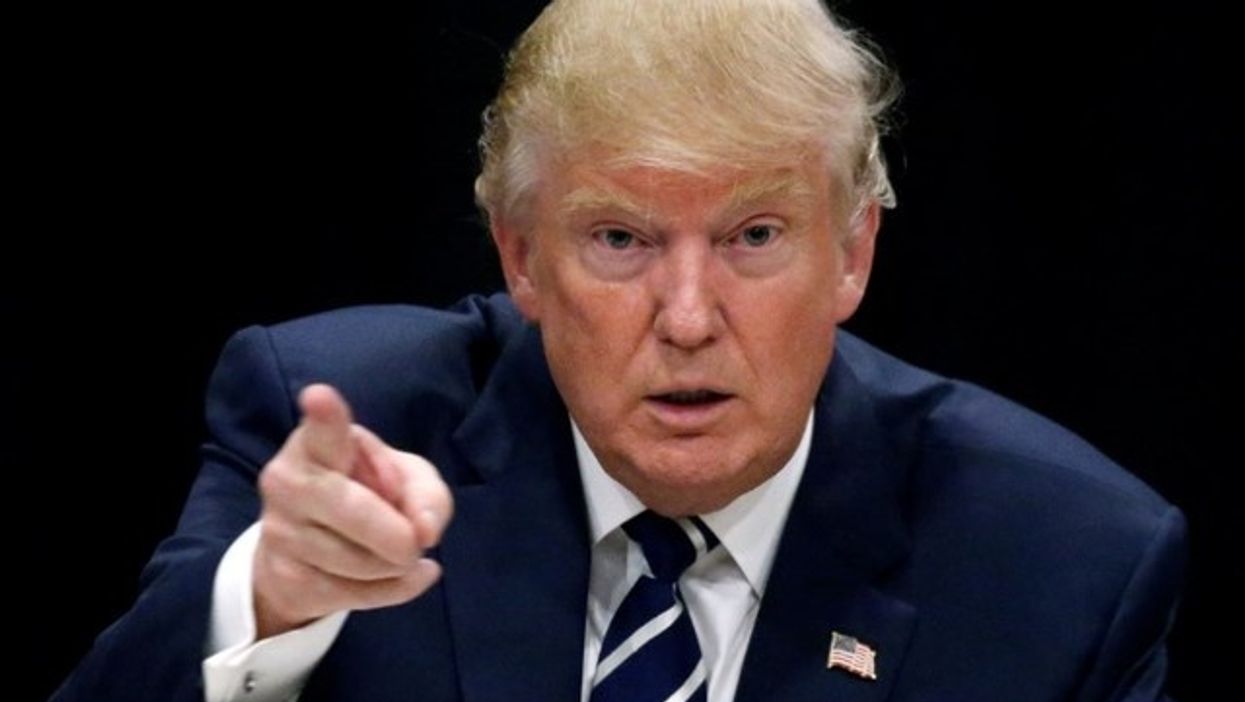Trump’s Immigration Ban Literally Harms Our Health
Over the past three years, I have spent a lot of time in hospitals supporting close relatives with serious medical conditions. I've been there many mornings, afternoons and evenings, interacting with doctors, nurses and other personnel. And I often wonder: Where would hospital patients be without immigrants?
Many of the people on the front lines of the battle against the coronavirus came here from other countries. A 2018 study found that 29 percent of physicians were born abroad and seven percent are not U.S. citizens. For registered nurses, the figures are 16 percent and three percent. There is no telling how many hospital kitchen workers, IT staff and maintenance employees — all crucial to operations — are also foreign-born.
If you find yourself in the hospital with COVID-19, chances are very good that you'll get care and help from immigrants. You may end up owing your life to one. Some of them have died of the disease.
But in the midst of the worst public health crisis in decades, President Donald Trump has repaid this group with an insulting policy. On Monday, he tweeted that he would suspend legal immigration, ostensibly to combat the virus and save American jobs. Trump brings to mind what the 18th-century English writer Samuel Johnson remarked: "Gratitude is the fruit of great cultivation; you do not find it among gross people."
Ingratitude is just one of the qualities his policy reveals. Also at work are incompetence and intolerance. Immigration didn't cause the pandemic, and shutting it down won't prevent infections. What it will do is feed blind resentment of foreigners, to our own detriment as well as theirs.
The nation's medical facilities could use more foreigners right now. New Jersey has acted to grant temporary licenses to doctors who are licensed in other countries; New York has done the same for medical professionals working in Canada.
The president's order reportedly exempts medical workers. But what good does that do for those already here who trying to bring over family members who might help them manage during this public health emergency? His policy also sends an inhospitable message to any health professional who might think of coming.
Trump's own State Department understands the need. A couple of weeks ago, it invited foreign medical professionals who have immigrant or nonimmigrant visa applications — "particularly those working to treat or mitigate the effects of COVID-19" — to contact our embassies for emergency processing.
When his interests are at stake, Trump is capable of grasping the value of immigrants. He's hired a lot of foreign guest workers at his Mar-a-Lago resort and other properties. His order reportedly will exempt seasonal farm workers, an essential part of the economy in many red states.
But there is no reason to think barring immigrants would help curb the outbreak. A review of research on the topic by David Bier, an immigration analyst at the libertarian Cato Institute, concludes that the data show "no benefit to international travel restrictions once an outbreak has already become an epidemic inside the destination country."
His colleague Alex Nowrasteh has found that counties with more immigrants have no more coronavirus cases or deaths than comparable counties with fewer immigrants. The crucial variable is population density.
Trump, remember, hasn't shut down all travel from abroad. If he were focused on preventing the spread of this virus rather than demonizing foreigners, he would require anyone arriving from abroad, including U.S. citizens, to undergo a 14-day quarantine — not bar them from coming at all.
Nor will his latest ploy save jobs for Americans. The huge jump in unemployment is the product of the outbreak and the restrictions imposed to contain it. Shutting out foreigners won't put a single bartender, oil field worker or retail salesperson back to work.
The real point of Trump's immigration order is the same as many of his other actions and pronouncements in this crisis: to put the blame on others, particularly foreign governments and foreign citizens for the spread of what he has called a "foreign virus" and "the Chinese virus." Having squandered weeks that could have been used to marshal critical resources against the pandemic, he now labors to divert attention from his own failures. Foreigners are his favorite scapegoat.
If and when the battle against this disease is won, Americans will owe a debt to many immigrants for their contribution. Trump's immigration policy? Not so much.
Steve Chapman blogs at http://www.chicagotribune.com/news/opinion/chapman. Follow him on Twitter @SteveChapman13 or at https://www.facebook.com/stevechapman13. To find out more about Steve Chapman and read features by other Creators Syndicate writers and cartoonists, visit the Creators Syndicate website at www.creators.com.




